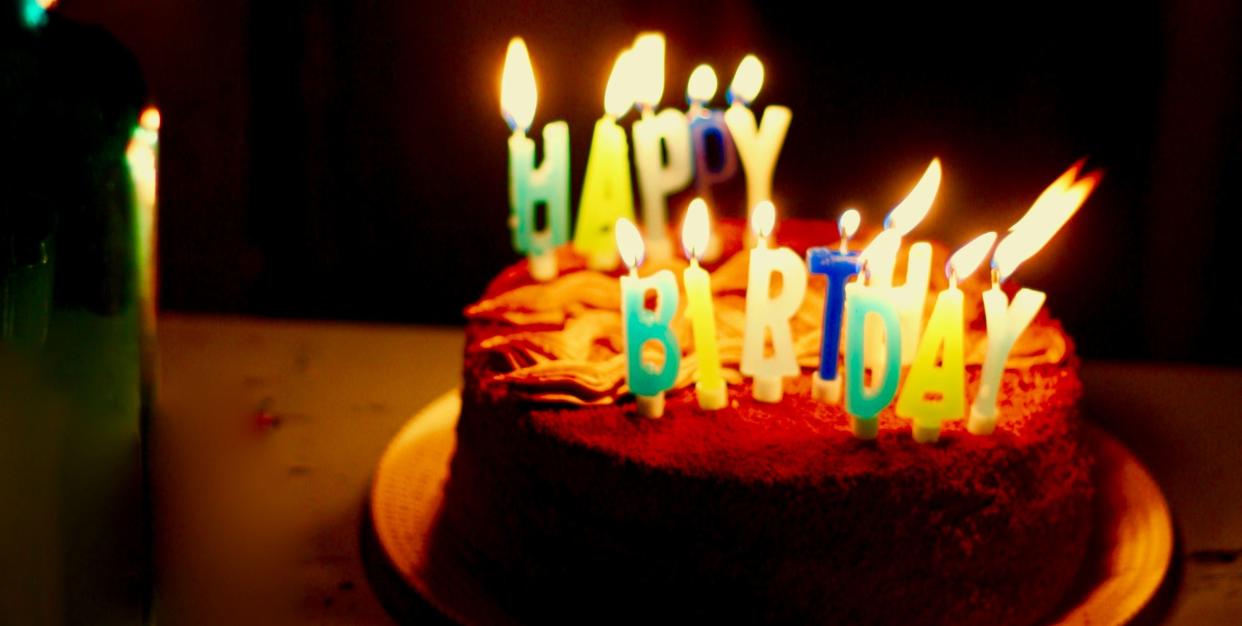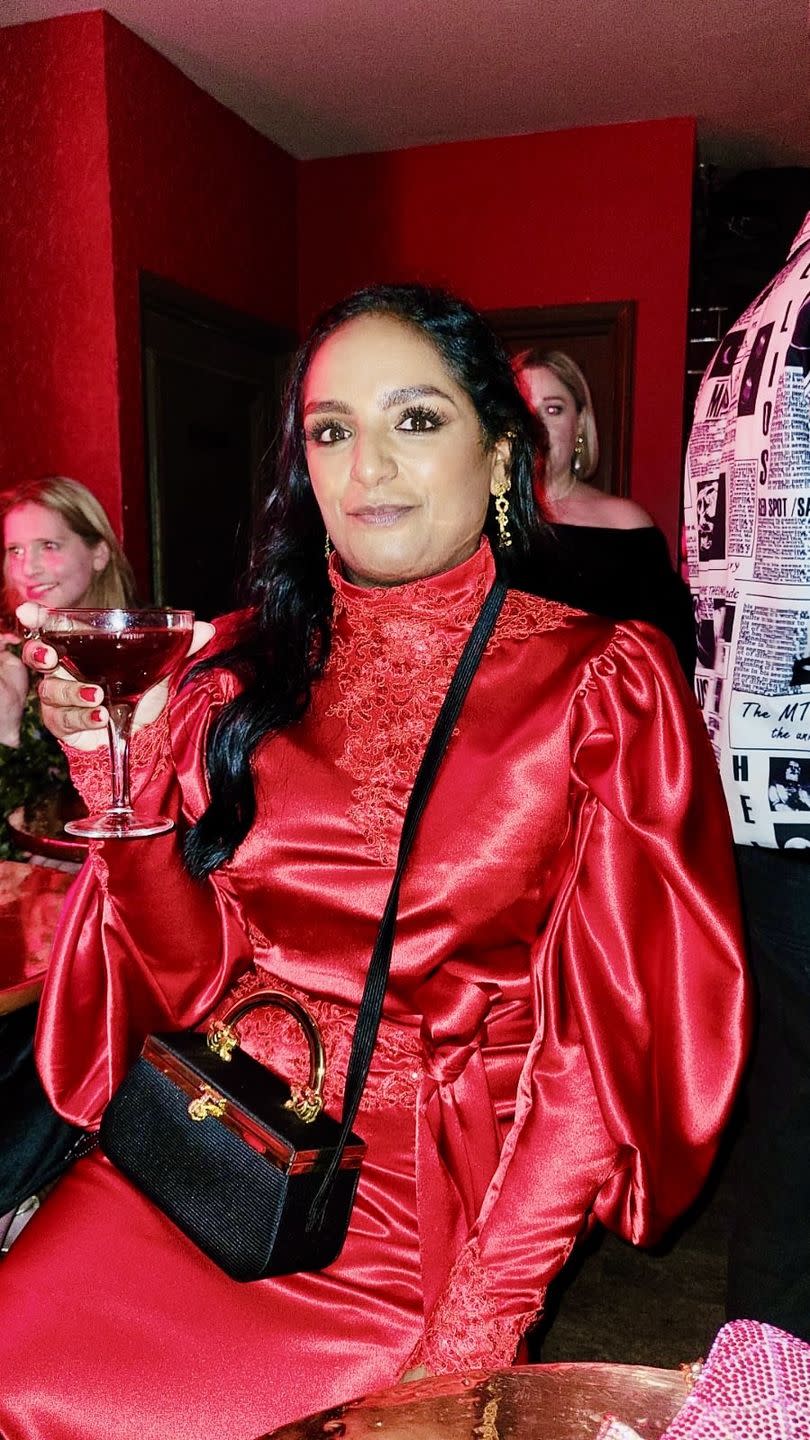Why you should always be the birthday queen

In my 30s, I noticed more birthdays felt like a non-event, or worse, a disappointment. After a wonderful 30th birthday party, each year I noticed the drop-out rate increase. The effort people used to make started to wane. I first noticed it with my male friends; as they became coupled up, it seemed like they forgot their mates. Then, as people got married, their friends seemingly took less of a precedent in their lives, giving them another reason to bail.
The birthday death knell comes when friends have babies or relocate, meaning that attending your birthday celebration becomes low on their priority list – and, truthfully, you can be made to feel it. Each year, the drop-out texts start trickling in, building to a flurry of ‘sorry, I’m knackered/run down/too broke’ – often on the day of the event itself, which leaves you feeling emotionally ruined by the time the party starts (send your apologies the day after, I say).
As an unmarried person, you spend a vast amount of time (and money) celebrating other people at their engagement parties, hen dos, weddings, baby showers, christenings and their kids’ birthdays. All of which is fine, but it can feel like you seldom get a return on the investment. It isn’t about monetary recompense, it’s enough to just honour the unspoken promise to always show up to your birthday to celebrate you, no matter what.
Gradually, we seem to stop valuing birthdays in adulthood, as if they become optional. But they are one of few celebrations that aren’t attached to those traditional (and traditionally heteronormative) milestones. They celebrate us just for being here, not because of something external like marriage or kids, and as an adult that’s so rare.
In one of my more traditional friendship groups, it struck me how the moment there’s a marriage or a baby, it’s followed by a host of gifts and celebratory events that are almost expected. But other milestones such as getting a puppy (and keeping it alive) or buying a flat on your own (which is so hard) didn’t seem to elicit the same form of celebration. That’s not to say friends weren’t pleased or proud, but our societal conditioning has ensured that if it’s not attached to a partner – or a part of that traditional female journey – it’s not worth celebrating. You’re not worth celebrating.
When I had my book launch party last year, it struck me how uncomfortable I felt about being celebrated. Firstly because of my childhood experiences – in Indian culture (in my experience) to be truly celebrated requires you to achieve an accolade of some kind; such as getting top grades or a place at the best medical school. Nothing I achieved – such as writing for national magazines at 15, or winning multiple writing competitions – was worthy of celebration, so, in turn, I never celebrated myself, either.
But I think there’s another reason I felt awkward being the centre of attention: because it just isn’t something that happens if you don’t hit those aforementioned milestones. As we get older, the opportunities to have people make a fuss over you really dwindle into oblivion, but we stay silent. Perhaps it’s not spoken about because to expect people to come to your birthday celebration as an adult makes you seem self-obsessed, even immature or petty – and by 40 you should certainly know better. Or perhaps it’s that lingering societal pity attached to single women, especially those over 30, that manifests in how little you (and your own achievements) are celebrated.

Turning 40 this year made me realise how crucial it is that we celebrate our friends’ birthdays and achievements outside the traditional milestones and roles such as ‘wife’ and ‘mother’. We need to celebrate amazing new jobs or launching a new business. Divorces and breaking up with the wrong person are cause for celebration. Embarking on solo travel adventures or getting the all-clear after a medical issue deserve our cheer, too. All of it does, because none of it is easy.
So for my 40th party, I decided I did want to do something to celebrate, well, me. I realised I’d spent so much of my life waiting for somebody else – family, partners, friends – to celebrate me that I needed to reclaim and do that for myself. I compiled a list of my closest pals, and just anyone I really liked, even if I didn’t see them much.
I hate organising events, so to make it low-stakes, I booked an area in a divey cocktail bar that was open until 3am. I set an Anita-inspired dress theme: ‘goth or glam’, and loved that people went for it (we all want a chance to let off steam sometimes). I also had a dress made by a designer I love called Magdalene Celeste. I never felt like I had the opportunity to do that before, and I felt incredibly special wearing it.
It was a lesson for me in so many ways. We shouldn’t shy away from being celebrated; it’s one of the things younger generations do so well, they really self-celebrate, while older generations tend to feel more awkward about it. My Indian culture also raised me to work hard and keep my head down, when I need to celebrate myself and my accomplishments far more. That extends outwards, too; and it isn’t always parties. We need to celebrate our friends in whatever shape their lives have taken.
The drop-off rate is hard to cope with and not take personally, but it works both ways. I realised I needed to express to my friends how not being celebrated made me feel, and they responded. Likewise, I need to be more aware of their struggles, and celebrate their milestones that aren’t baby- or partner-related, too.
I think we should express our disappointment when people can’t make the days that are important to us for reasons that aren’t justifiable, but also, it’s our responsibility to make sure they know that having them there means a lot to us in the first place.
We do need to see it as more of a duty to celebrate one another, and ourselves, outside the traditional milestones, I think, which means sticking to plans and recognising how flakiness can make people feel, and ultimately prioritising friendships – our chosen family. Even when it feels hard, or we’re too busy, we should honour them, because we can’t plan how life will turn out. There will always be twists and turns, and ultimately our friends – if we choose them well – are the ones who will always have our backs.
To me, a birthday celebration is a way of saying ‘thanks for being a good friend’ and acknowledging what we bring to each other’s worlds. It’s particularly important if you’re single, and it’s also a way to – as controversial as it might seem – weed out the friends that don’t value you the way you value them. That then creates space for new friends to enter your life, who do prioritise you more.
Birthdays are a ritual that keeps friendships – and life – fun. Life is hard enough, so my motto is: let’s celebrate whatever we can. There’s a school of thought that once you’re an adult, birthdays are for children. But inside we’re all kids, so why do we stop honouring that?
Ultimately, we all deserve to be celebrated just for being here – for being valuable – and on every birthday, until the very end.
Anita Bhagwandas writes The Powder Room, a weekly Substack column. Her book Ugly: Why The World Became Beauty-Obsessed And How To Break Free (Blink Publishing) is out now in paperback.
You Might Also Like



